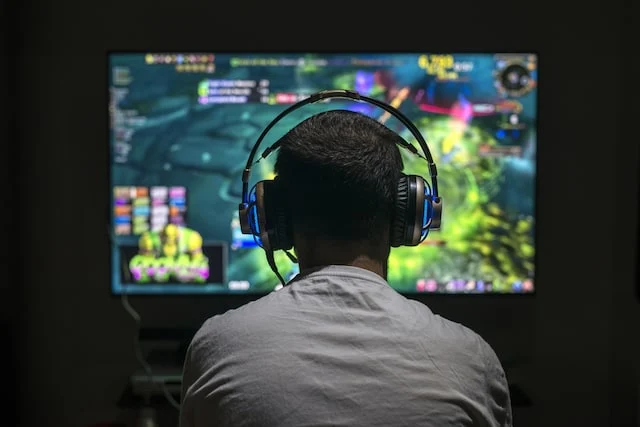As we move into 2024, the integration of artificial intelligence (AI) in gaming is set to revolutionize the way players interact with virtual worlds. This article explores various aspects of AI in gaming, highlighting how it contributes to creating smarter and more immersive experiences.
Enhanced NPC Behavior
One of the most significant advancements in AI for gaming is the improvement of non-player character (NPC) behavior. In 2024, NPCs are expected to exhibit more realistic and dynamic responses to player actions, thanks to sophisticated algorithms and machine learning techniques. This evolution allows NPCs to adapt their strategies based on player behavior, creating a more engaging and unpredictable gaming environment.
For instance, NPCs can now learn from previous encounters, adjusting their tactics to provide a more challenging experience. This not only enhances gameplay but also deepens the narrative, as players feel their choices have a tangible impact on the game world. The result is a richer, more immersive storytelling experience that keeps players invested in the game.
Procedural Content Generation
Procedural content generation (PCG) is another area where AI is making waves in gaming. In 2024, developers are leveraging AI to create vast, unique game worlds that are generated on-the-fly. This technology allows for endless exploration and replayability, as no two gaming experiences are the same.
By utilizing algorithms that analyze player preferences and behaviors, games can tailor environments, quests, and challenges to individual players. This personalization not only enhances player engagement but also ensures that the game remains fresh and exciting, encouraging players to return for new adventures.
AI-Driven Storytelling
AI is also transforming storytelling in video games. In 2024, we can expect to see narratives that adapt in real-time based on player choices and interactions. This dynamic storytelling approach allows for multiple outcomes and endings, making each player’s journey unique.
With AI analyzing player decisions, games can offer personalized story arcs that resonate more deeply with individual players. This level of interactivity fosters a stronger emotional connection to the game, as players feel their choices genuinely shape the narrative. As a result, storytelling in gaming is becoming more complex and engaging than ever before.
Smarter Game AI for Competitive Play
In competitive gaming, AI is being utilized to create smarter opponents that can challenge even the most skilled players. In 2024, AI algorithms are expected to analyze player strategies and adapt in real-time, providing a more balanced and competitive experience.
This advancement not only enhances the challenge for players but also improves the overall quality of multiplayer games. By ensuring that AI opponents can learn and evolve, developers can create a more engaging and competitive environment that keeps players on their toes.
Virtual Reality and AI Integration
The combination of virtual reality (VR) and AI is set to redefine immersive gaming experiences in 2024. AI can enhance VR environments by creating responsive and interactive elements that react to player movements and decisions.
This integration allows for a more lifelike experience, where players feel as though they are truly part of the game world. As AI continues to evolve, we can expect even more sophisticated interactions within VR, making gaming experiences more immersive and engaging than ever before.
AI in Game Testing and Development
AI is also playing a crucial role in game development and testing processes. In 2024, developers are utilizing AI to streamline testing, identify bugs, and optimize gameplay mechanics. This not only speeds up the development cycle but also ensures a higher quality final product.
By automating repetitive tasks and analyzing player feedback, AI can help developers make informed decisions about game design and features. This results in a more polished gaming experience, as developers can focus on creativity and innovation rather than getting bogged down by technical issues.
Personalized Gaming Experiences
As AI technology advances, personalized gaming experiences are becoming more prevalent. In 2024, games will be able to analyze player behavior and preferences to tailor experiences that resonate with individual players.
This personalization can manifest in various ways, from customized difficulty levels to unique storylines and character interactions. By catering to individual player preferences, games can create a more engaging and enjoyable experience, encouraging players to invest more
| Aspect | Description |
|---|---|
| Enhanced NPC Behavior | AI will enable non-playable characters (NPCs) to exhibit more realistic behaviors, making them react dynamically to player actions and environmental changes. |
| Procedural Content Generation | AI algorithms will create vast, unique game worlds and quests, ensuring that each player’s experience is distinct and engaging. |
| Adaptive Difficulty Levels | Games will utilize AI to adjust difficulty in real-time based on player skill and performance, providing a tailored gaming experience. |
| Improved Storytelling | AI-driven narratives will allow for branching storylines that adapt to player choices, leading to multiple endings and deeper engagement. |
| Realistic Graphics and Animation | AI will enhance graphics rendering and character animations, creating more lifelike visuals and smoother movements in games. |
| Voice Recognition and Interaction | Players will be able to interact with games using natural language, allowing for more immersive and intuitive gameplay experiences. |
| AI in Game Testing | AI will streamline the game testing process by identifying bugs and balancing gameplay, leading to higher quality releases. |
| Community and Social Interaction | AI will facilitate better matchmaking and community engagement, creating more meaningful connections between players. |



